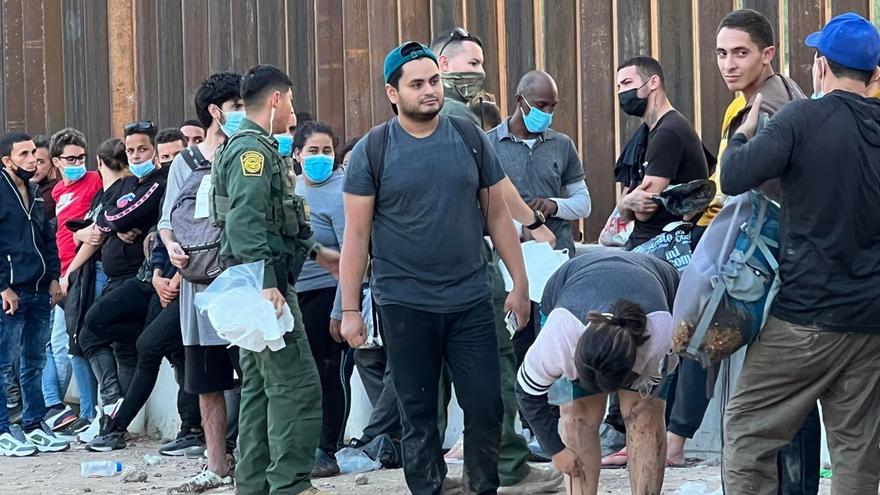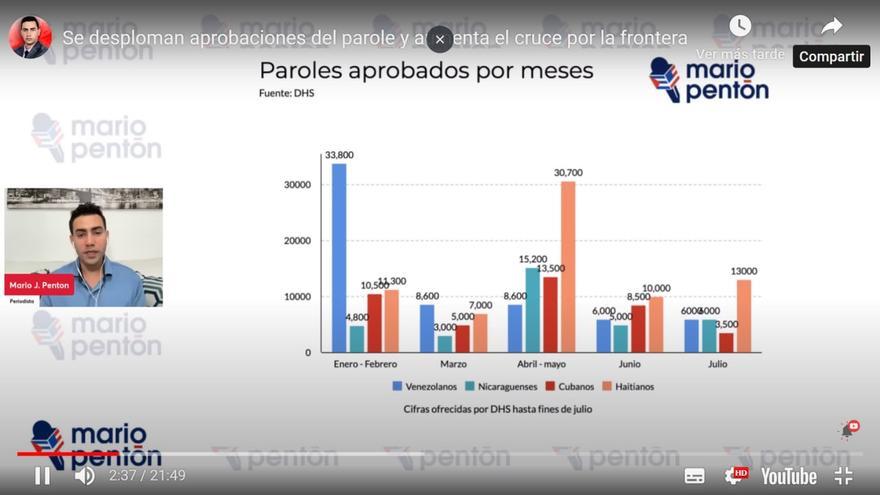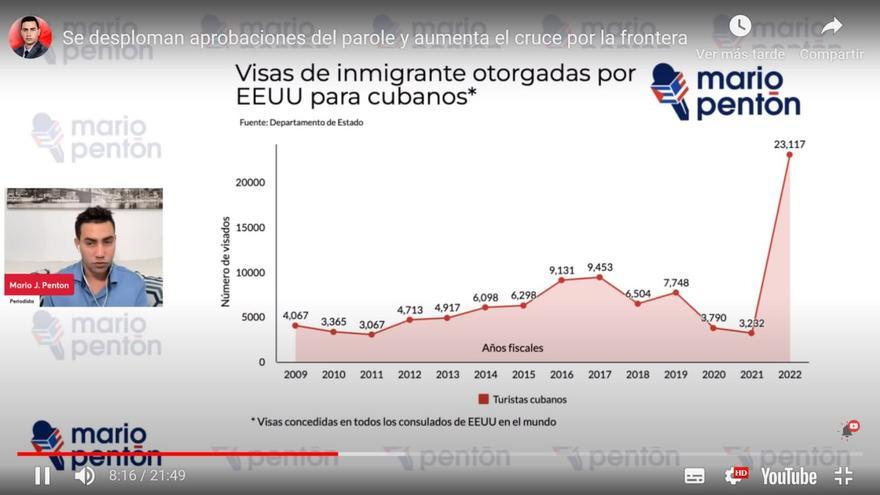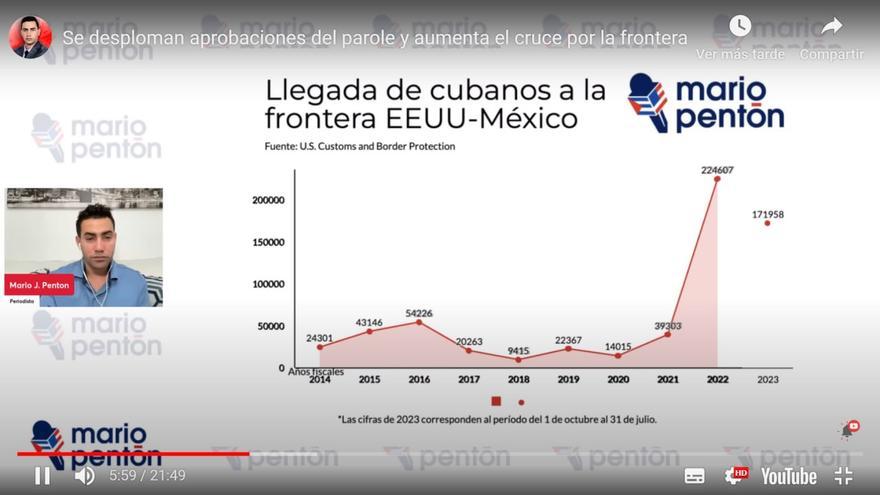
![]() 14ymedio, Madrid, 21 August 2023 — The number of Cubans benefited by the U.S. humanitarian parole program have plummeted from 8,500 in June to only 3,500 in July, well below Haitians (13,000). They also represent 30% less than in March (5,000), the worst month to date since this mechanism came into force for migrants from the Island, at the beginning of this year. In January and February there were 10,500 Cubans admitted, while in April and May they totaled 13,500.
14ymedio, Madrid, 21 August 2023 — The number of Cubans benefited by the U.S. humanitarian parole program have plummeted from 8,500 in June to only 3,500 in July, well below Haitians (13,000). They also represent 30% less than in March (5,000), the worst month to date since this mechanism came into force for migrants from the Island, at the beginning of this year. In January and February there were 10,500 Cubans admitted, while in April and May they totaled 13,500.
The figures were released this Sunday by Cuban journalist Mario J. Pentón in a video in which he expressed concern about the sharp increase in illegal arrivals of Cubans across the Mexican border From October 2021 to September 2022, records were broken, with 224,607 migrants from the Island. The current one is going the same way, since from October 1 to July 31 there were already 171,958 Cubans who followed this route.

The humanitarian parole program is working, says Pentón, but the eagerness to reach the U.S. is stronger than the pace of approval of documentation, and desperation leads many to try to follow the illegal path. The journalist from América Tevé emphasized the importance of taking into account that this path is increasingly complicated, since it is not enough to justify “credible fear” as a reason for leaving Cuba.
Pentón mentioned a Cuban who had recently contacted him to explain the case of his wife, pending trial after her request was rejected in the interview with officials of the U.S. Customs and Border Protection. At the meeting, the woman tried to demonstrate circumstances of persecution in Cuba, but the agent told her that he did not want to know why she left the Island but why she did it illegally. “It’s not that easy,” says Pentón, who also provided data on visas granted to Cubans in U.S. consulates around the world.
In that sense, 2022 was a year of spectacular growth, with 23,117 visas of this type approved, which represents a huge jump compared to the previous year (just 3,032) and much more than double the previous record, 9,453 in 2017.

Pentón also emphasizes that, by nationality, Cuba was the most affected in July. Venezuelans received 6,000 humanitarian paroles, the same number as Nicaraguans, while Haitians got 13,000 and now have accumulated four months of increases, with the period of April and May being the most voluminous. In those two months, Haitian natives obtained 30,700 approvals, compared to 15,200 Nicaraguans and 8,600 Venezuelans.
Penton maintains that the Department of Homeland Security has assured him on several occasions that the intention was to balance the figures of the different beneficiary countries, but to date that still hasn’t happened.
In total, 41,000 Cubans, 34,000 Nicaraguans, 63,000 Venezuelans and 72,000 Haitians have benefited from the parole. The disproportion can be seen the most in the last two figures, since Venezuela has almost three times the population of Haiti.
Pentón insists that the program, in force since October 2022 for Venezuelans and since January 2023 for the other three nationalities, has defects, such as the order and pace of approval. However, it is currently the most appropriate way to reach the U.S. without problems, since the illegal crossing of the Mexican border entails many dangers, and, he repeats, it is not easy to successfully pass the interview with the motive of “credible fear.”

Meanwhile, arrivals by sea do not stop either. This Sunday, the U.S, deported 12 Cubans who had “illegally left the country with support from abroad and were subsequently intercepted at sea by the U.S. Coast Guard Service,” according to a note from the Cuban Ministry of the Interior. The same text points out that, so far this year, the number of returns to Cuba from Washington by air and sea now amounts to 4,261.
Specifically, the deportees this Sunday had left the port of Orozco, in Artemisa. In the group were, according to the official version, “two citizens on probation for compliance with criminal sanctions at the time of leaving the Island,” so “they will be made available to the corresponding courts for the revocation of said benefit.”
Since October 1, 2022, more than 6,800 Cubans have been intercepted by the U.S. Coast Guard on the maritime route.
Translated by Regina Anavy
____________
COLLABORATE WITH OUR WORK: The 14ymedio team is committed to practicing serious journalism that reflects Cuba’s reality in all its depth. Thank you for joining us on this long journey. We invite you to continue supporting us by becoming a member of 14ymedio now. Together we can continue transforming journalism in Cuba.
